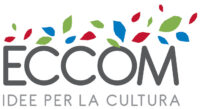It means the use of art to provide the tools with which to make positive changes in your life. It is a poetic expression, behind which emerges a real methodology– to produce significant changes starting from a particular artistic inclination. Dance, music, photography, theatre, painting are the tools to open up and stimulate imagination and desire–a natural human instinct, that is often lost, especially in minors who are faced with critical and extremely uncomfortable situations. Regaining desire means reclaiming dignity, rebuilding trust in oneself and in the world, taking back one’s inalienable human rights and hoping for a different future out of the reconstruction of one’s interests, in a non-formal but creative educational journey. Art is a transformational power. The search for beauty, in all its forms, leads to knowledge of oneself and of the world, with which aesthetics and ethics combine. The pedagogy of desire is also an important exercise in humility for operators working in contexts of marginalization. “What would you like? What would you like to do?” are unfortunately not so obvious questions, which often disappear in favor of the “top down” imposition of and presumption to know solutions to complex problems. The pedagogy of desire forces us to take a step backward, to break up the educator-educatee dialectic in order to construct a peer-to-peer dialogue together made of mutual understanding.
